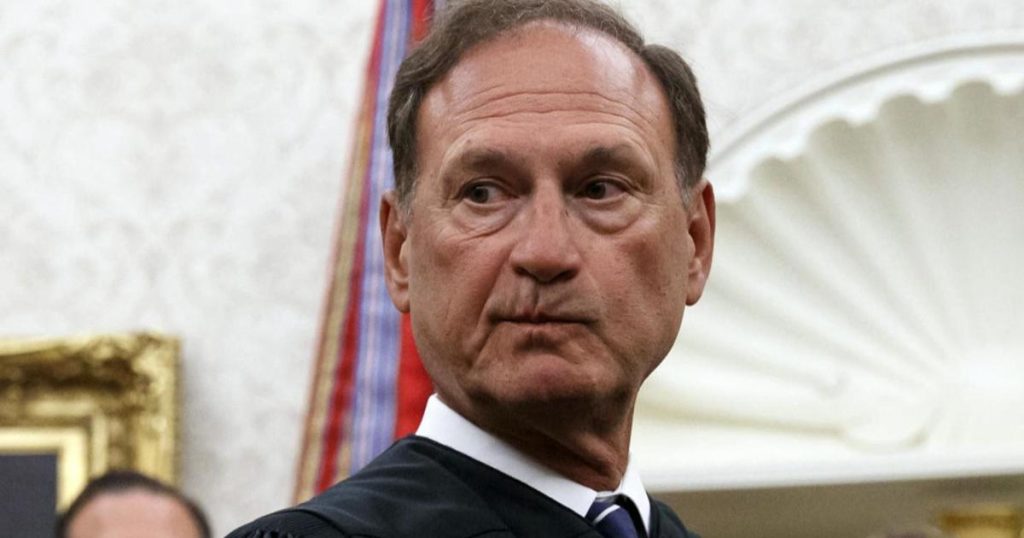In a recent letter to congressional Democrats, Supreme Court Justice Samuel Alito stated that he will not recuse himself from two cases related to the January 6 Capitol riot, despite controversy surrounding flags associated with the rioters being seen outside his homes. Alito’s decision comes after calls for him to step down from the cases, with concerns that his impartiality may be compromised due to the presence of the flags. The flags were reportedly seen outside his homes, raising questions about his ability to oversee the cases objectively.
Alito’s refusal to recuse himself from the Jan. 6 cases raises concerns about potential conflicts of interest and impartiality in the Supreme Court’s handling of the cases. The presence of flags associated with the Capitol rioters outside his homes could create doubts about Alito’s ability to make unbiased decisions in these cases. Critics have called for Alito to step down from the cases to ensure fairness and avoid any appearance of impropriety. As a justice on the nation’s highest court, Alito’s decisions carry significant weight, making it essential for him to demonstrate fairness and impartiality in his rulings.
The controversy surrounding Alito’s refusal to recuse himself from the Jan. 6 cases highlights the challenges of ensuring judicial independence and ethical conduct among Supreme Court justices. Alito’s decision to remain on the cases despite concerns about his impartiality raises questions about the court’s ability to uphold the principles of justice and fairness. As a key figure in the legal system, Alito’s actions and decisions have far-reaching implications, underscoring the importance of maintaining trust and confidence in the judiciary.
Alito’s letter to congressional Democrats rejecting calls for recusal from the Jan. 6 cases reflects his commitment to overseeing the proceedings despite the controversy surrounding the flags outside his homes. By taking a firm stance on his involvement in the cases, Alito signals his determination to carry out his duties as a Supreme Court justice responsibly and impartially. While critics may question his decision, Alito’s response underscores his belief in his ability to fulfill his judicial responsibilities without bias or favoritism.
The discussion surrounding Alito’s refusal to recuse himself from the Jan. 6 cases underscores the broader issues of transparency and accountability in the judiciary. As calls for judicial reform and increased oversight continue to grow, cases like these highlight the challenges of maintaining public trust in the legal system. Alito’s decision to address the controversy directly through a letter to congressional Democrats demonstrates a willingness to confront concerns about his impartiality and uphold the integrity of the Supreme Court. Moving forward, the court’s handling of the Jan. 6 cases will be closely watched to ensure fairness and justice are upheld.
In conclusion, Justice Samuel Alito’s decision not to recuse himself from the Jan. 6 cases despite the controversy surrounding flags outside his homes raises important questions about judicial ethics and impartiality. As the Supreme Court prepares to hear these cases, the spotlight is on Alito and his colleagues to ensure that justice is served fairly and transparently. The outcome of these cases will not only have significant legal implications but will also shape public perceptions of the judiciary’s ability to uphold the principles of justice and fairness. Alito’s position on these cases underscores the complexities and challenges of navigating ethical dilemmas in the legal system and the importance of maintaining public trust in the judiciary.


